Episode 176 - RootsTech Roundup, Writing Your History, DNA and Surnames
Genealogy Gems Podcast
Episode 176 with Lisa Louise Cooke
Download the FREE App
www.GenealogyGems.com
Download the show notes here
In this episode we are going to check in with our Genealogy Gems Book Club Guru Sunny Morton on our featured book Orphan Train, and some additional books you'll want to add to your reading list that also provide insight in to how you can approach writing your own family's history. And Your DNA Guide here at Genealogy Gems, Diahan Southard, will be here to tell you how to Social Network Your YDNA with Surname Projects
But first I've got the RootsTech Run down for you. Last week I spoke at RootsTech 2015 which was really a two-fer conference of both RootsTech and the Federation of Genealogical Societies national conference. So needless to say it was bigger than ever. If you didn't attend, why should you care? Because FamilySearch which is the organization behind RootsTech has really, and I mean really, upped the family history game if you will. Even though they are a non-profit, they are really leading the industry, and having a huge impact on the types of genealogy resources and services that are being developed, which directly affect your family history research.
And Family History is the key phrase there. At a FamilySearch VIP event I attended the leadership made a point of saying there is a distinct difference between genealogy and family history. We may often use these terms interchangeably, but they made this point with purpose, to drive home the fact that they are concerned with more than just genealogy; the building of your tree and tracing of your lineage. They are extremely focused on family history, and from what I know about you, you are too. Family history is the holistic approach the stories, the photos, the legacy you are creating through your research. It's not that its critical which words you use, but I think they focused on the distinction to really help the community understand what their focus is.
For example, the keynote speakers included Former first Lady Laura and Jenna Bush, (who by the way did a phenomenal job and were witty and thoroughly enjoyable), as well as Donny Osmond, and American Idol star David Archelta. There were some negative comments about these choices floating around on social media before the conference, but for anyone who attended and saw the presentations it all made perfect sense. They all spoke, and sometimes sang, to the heart of family history. I know for all you listening, your heart is certainly in it. They offered incredible inspiration and I think everyone walked away rejuvenated and recommitted to their research. And research just isn't the right word. They came away motivated to continue on the legacy of family history they are building. And really that is the job of the keynotes. To set the tone and inspire and motivate, because there were plenty of in-depth classes and a huge variety of topics to fulfill the educational component of why we attend conferences .
Let me give you a run down on some of the stats:
FamilySearch, which was formerly the Genealogical Society of Utah, celebrated its 120th birthday last fall. It now operates 300 cameras in 50 countries around the world collecting digital genealogical sources. They released two mobile apps in 2014, FamilySearch Tree, the mobile companion to Family Tree on the FamilySearch website, and The Family Search Memories app which helps you collect, preserve, and share your favorite family photos, stories and spoken words. They are launching a new indexing program which will be part of the FamilySearch website which can be used on most desktop computers, notebooks and tablets. And to give you an idea of the scope of FamilySearch Indexing , there are 321,000 volunteers who have indexed 160 million records in 2014 alone, bringing the total of records indexed to 1.26 billion. These are records being made available to all of us free on the familysearch.org website.
In June of 2014 FamilySearch surpassed publication of 1 billion images. It took 7 years to get there and the billionth image was published in FamilySearch's growing collection of Peruvian records. IF you consider that a single digital image can have several historic records on it, that means there are actually billions of record images on FamilySearch. FamilySearch projects that it will take just 3 to 5 years to publish the next billion images.
And as for new record collections, in 2014 FamilySearch published 38 million obituaries, 10 new Freedmen's Bureau field office collections, and new and updated collections all around the world.
One of the coolest things they unveiled is their new Discovery Centers. This is something that they announced last year, and our contributing editor Sunny Morton got a chance to go through the one in the Joseph Smith Memorial Building in Salt Lake City while at the conference. Here is a link to her blog...
-
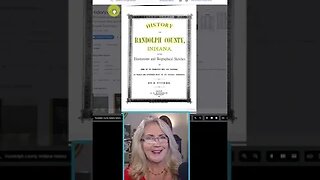 1:01
1:01
Genealogy Gems - Your Family History Channel
1 year agoBest New Google Books Feature Convert Books to Text #shorts
1601 -
 13:46
13:46
Tactical Advisor
1 day agoCan a Gun This Small Be Any Good? Smith & Wesson Bodyguard 2.0
13.2K4 -
 59:51
59:51
Trumpet Daily
23 hours agoWhat Is Kamala Harris Trying to Say? - Trumpet Daily | Sept. 20, 2024
17.5K10 -
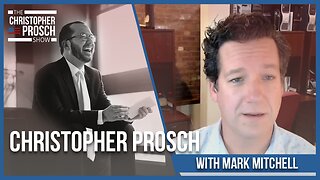 1:01:22
1:01:22
The Christopher Prosch Show
17 hours agoAre the National Polling Institutions lying to you!??
11.8K4 -
 13:34
13:34
Ethical Preparedness
17 hours agoThe Cannibals Attack: The Fatal Cost He Paid in His Battle Against Marauders -Post Collapse Medicine
6.18K4 -
![Kamala's EX calls her critics MENTALLY ILL people who will end up "EATING OUT OF GARBAGE CAN[S]"](https://1a-1791.com/s/s8/1/K/v/h/M/KvhMt.0kob-small-Kamalas-EX-calls-her-critic.jpg) 1:45
1:45
Memology 101
17 hours agoKamala's EX calls her critics MENTALLY ILL people who will end up "EATING OUT OF GARBAGE CAN[S]"
4.11K14 -
 3:42
3:42
Brownells, Inc.
22 hours agoQuick Tip: The RIGHT Way To Use the Forward Assist
2.6K3 -
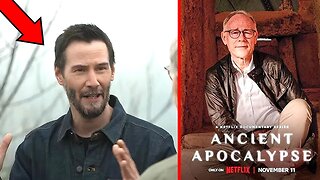 1:13:32
1:13:32
Bright Insight
14 hours agoAncient Apocalypse Season 2 UPROAR w/ Illegitimate Scholar
87.1K70 -
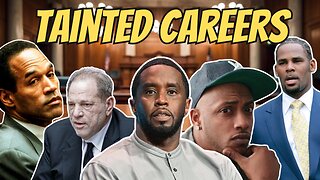 1:15:15
1:15:15
Havoc
17 hours agoTainted Careers & Tarnished Legacies | Stuck Off the Realness Ep. 14
140K20 -
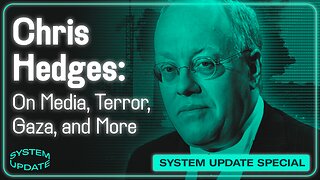 1:05:33
1:05:33
Glenn Greenwald
1 day agoJournalist Chris Hedges on Media, Terror, Gaza, and More | SYSTEM UPDATE #338
126K169